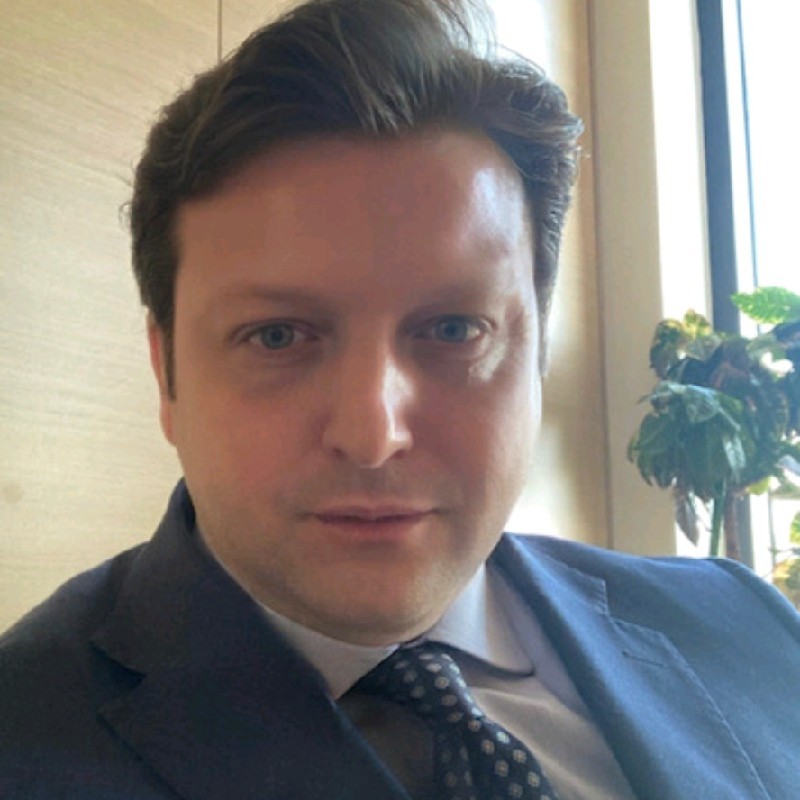16 May 2022
Today, the achievement of organisational well-being requires human resource management that puts human sustainability at the centre. Thanks to this approach and the actions it has put in place for its employees, Q8 was honoured in 2022 by Lifeed as a Caring Company, an award for companies capable of valuing people by expressing a social role with concrete and measurable actions. Fortunato Costantino, People care, Employees & Unions Relationship Manager atQ8 discusses how work-life synergy is possible and what the benefits of this vision are for people and companies.
The health emergency has made society more aware of its own condition of structural incompleteness, thus accelerating a shift away from the traditional paradigms of the social sciences, such as the mechanistic and deterministic paradigm according to which certain actions and behaviours implemented in the present are always able to direct and control the future. Instead, we must prepare ourselves to live in extremely fluid and variable economic and social scenarios, which cannot be explored or predicted (dealing with ambiguity or uncertainty), and in this changing context, ‘self-renewal’, i.e. the individual’s ability to be resilient and adapt to change, becomes crucial. For the development of both private and public companies, and for the entire country-system, placing proper value on the human factor therefore becomes central. The readiness of organisations to be socially sustainable will be the key to permanently overcoming the Taylorist paradigm that focuses only on the individual’s capacity for productivity, adopting instead a person-centred approach, i.e. one that focuses on full, integral and authentic human development, considering the individual as the main strategic asset of the company, as well as of civil society, and creating the conditions for personal and organisational well-being.
This radical cultural change can only be based on a new style of leadership that is functional to sustainability, capable of combining the inalienable objectives of profitability with the concrete promotion of human capital. This must be implemented through continuous discussion and transparency in the sharing of information and strategic objectives, encouraging everyone to exercise their talents and developing the multiple dimensions of identity that each employee is capable of expressing. What is needed, therefore, is “sustainable” leadership capable of taking a holistic view of the individual, overcoming the work-life trade-off, aware that the existence of each individual is an integrated experience that reflects the multiple dimensions of being and of the roles played, and that would lose its meaning if abstracted from any of its essential components. If one does not accept the idea of this inescapable interpenetration between dimensions of being, one cannot even begin to understand human reality, society and the overall order of its projects.
It means moving beyond the static approach to the identity dimensions of the human being and considering life and work as a single entity. In HR, this translates into valuing the person in his or her entirety and in all his or her experiences, from private to professional roles. The individual is the primary strategic asset to be valued and the company can do this by seeking to harness the valuable interactions between life and work. When people feel they are listened to and valued for who they are, they generate more value in terms of engagement and motivation, becoming true brand ambassadors for the organisation. Consequently, relationships within the company also become more resilient and sustainable.

At Q8 we have complemented traditional training programmes with specific courses on harnessing life experiences. We are convinced of the importance of developing soft skills arising from life-work synergy. That is why we have introduced the Life Based Learning method devised by Lifeed, which has proved to be a unique source of learning. Just think of the fact that 30% of talents are expressed in professional roles while 70% are found in private roles, such as being a parent or caregiver: these are experiences that bring out innate talents which, if transferred to the workplace, provide great added value. This creates boundless opportunities, which must be seized by companies to increase value both in terms of individual self-coaching and in terms of talent retention, employer branding and organisational well-being for the company, especially in an increasingly competitive market.
We wanted to adopt an effective and practical global sustainability strategy, aware that this goal clearly had to include ESG parameters. We realised, however, that special attention had to be paid to the social parameter, convinced that the human or social sustainability of the organisation, its ability to generate value not only for itself but also for its employees and for the local area, is a privileged driver for the organisation’s success and for consensus among all possible stakeholders. We realised that the key to achieving this was to recognise the value of the individual in concretely measurable terms through the adoption of appropriate tools and methodologies capable of generating self-discovery and self-coaching skills by stimulating awareness and understanding of one’s talents and aptitudes. At Q8 we have therefore expanded Lifeed courses for our employees over the years because we share the same “open vision” on the value of the individual and because Lifeed has developed objectively qualified training tools and methods that have allowed us to achieve very positive results over time.
We have seen a more mature self-awareness among employees, who now live their experience of the company with more efficiency and motivation and say they feel better. This care for our employees has led us to be recognised by Lifeed as a Caring Company, an award of which we are very proud. Personally, I also find tools like MultiMe and Lifeed’s Diverse Talent Index ingenious and very useful. The improvement is apparent in several respects: for example, employees have overcome previous reticence related to a lack of self-awareness and feel more listened to thanks to the fact that the company has made the Lifeed courses available. This makes them more aware of their abilities and encourages them to be more proactive at work.

We have recorded an identical percentage (50 per cent) of men and women participating in Lifeed courses. From 2020 to date, around 200 people have registered, with 109 between April and May 2022 alone: these numbers demonstrate the growing resilience of the path we have taken and have prompted us to expand our collaboration with Lifeed through the ‘Work-life synergy’ training path. Participants are keen to talk about their experiences (we have gathered 2,500 reflections on the platform). 70% of them say they feel they have improved their soft skills, 81% have improved empathy and listening, 87% have developed change management, and 70% cent feel better able to handle stress. I was particularly struck by the fact that employees said they were more attentive to personal relationships, after having directly experienced major life transitions. As a result, they became more able to empathise with others and became more attentive to others. And there is also another fact of which we are very proud…
100% of the employees who became fathers in 2020 and 2021 requested the supplementary leave made available by Q8 in addition to that provided by law, demonstrating that the participants in Lifeed’s parenting courses have gained a new awareness of the fact that the role of father does not have to be subordinate to the professional one but, on the contrary, it actually improves synergy with work.
People Analytics is a very important source of insight for the company in order to get to know employees and put in place more effective data-driven plans to promote engagement and wellbeing. In our total well-being proposition, we believe that it is crucial to detect and identify the real needs of people, which are dynamic and constantly changing. To this end, we are confident that Data Analytics, supported by Artificial Intelligence, will enable us to capture changes in needs over time and consistently tailor the well-being and welfare services offered to our internal stakeholders (i.e. employees) based on their actual needs, while ensuring the social sustainability of the organisation in the future.